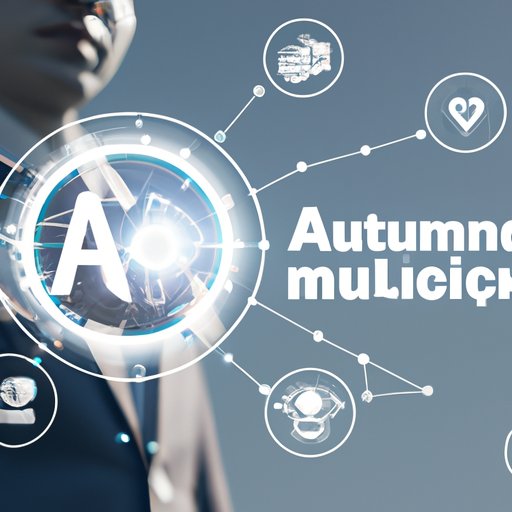Introduction
Artificial intelligence (AI) has been around since the 1950s, but it has recently become more popular in the business world. AI is a type of computer technology that allows machines to mimic human behavior and learn from their experiences. By leveraging this technology, businesses can gain a competitive edge by automating mundane tasks, personalizing customer experiences, enhancing security, optimizing supply chain, and improving productivity.
Automating Processes
One of the primary benefits of using AI to automate mundane tasks is that it eliminates the need for manual labor. AI algorithms can be used to quickly process large amounts of data and make decisions without requiring human intervention. This can save businesses time and money while also increasing accuracy and consistency. Examples of how AI can be used to automate processes include automated customer service chatbots, facial recognition systems, intelligent document analysis, and natural language processing.
Personalizing Customer Experiences
Another way businesses can leverage AI is to personalize customer experiences. AI algorithms can be used to analyze customer data and create personalized recommendations, offers, and content. By using AI to customize customer experiences, businesses can increase customer loyalty and engagement. Examples of how AI can be used to personalize customer experiences include targeted advertising, personalized product recommendations, and dynamic pricing.
Enhancing Security
AI can also be used to identify potential threats and improve security measures. AI-powered tools can scan for malicious activity and flag suspicious behavior. This can help businesses protect their data and prevent cyber attacks. Examples of how AI can be used to improve security include automated malware detection, real-time monitoring, and anomaly detection.
Optimizing Supply Chain
Businesses can also apply AI to optimize their supply chains. AI algorithms can be used to analyze data and identify areas of improvement. This can lead to better inventory management, improved delivery times, and reduced costs. Examples of how AI can be used to improve supply chain efficiency include predictive analytics, route optimization, and demand forecasting.
Improving Productivity
Finally, AI-powered tools can be used to improve productivity. Automated scheduling and task management solutions can help businesses manage projects efficiently and streamline workflows. This can lead to increased productivity and cost savings. Examples of how AI can be used to improve productivity include automated scheduling, task management, and project management.
Conclusion
In summary, AI can be used in a variety of ways to benefit businesses. By leveraging AI algorithms, businesses can automate mundane tasks, personalize customer experiences, enhance security, optimize supply chain, and improve productivity. With the right implementation, AI can provide businesses with a competitive edge and help them reach their goals faster.
(Note: Is this article not meeting your expectations? Do you have knowledge or insights to share? Unlock new opportunities and expand your reach by joining our authors team. Click Registration to join us and share your expertise with our readers.)
